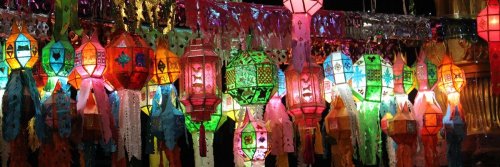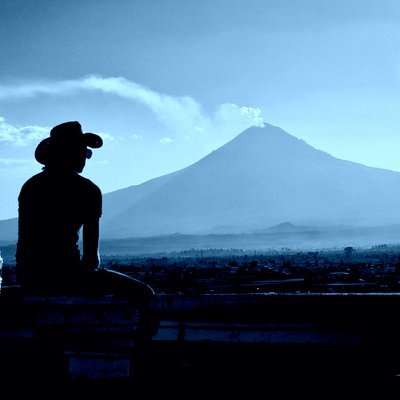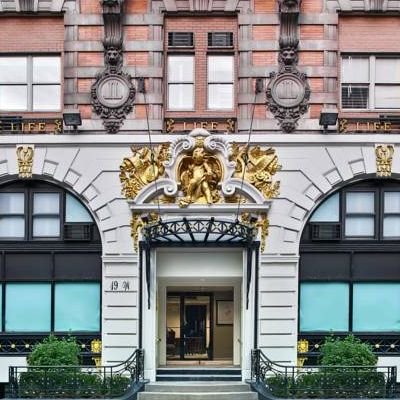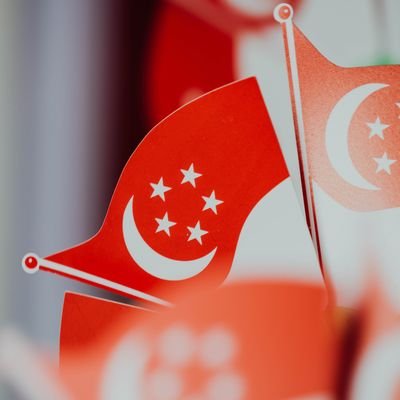Thais Love A Party, Here Are 5 Reasons To Have One
The Thais know how to party to celebrate anything and everything, with their festivals amongst the best in the world. Mostly rooted in religion, myths and legends, there is usually a healthy dose of crackling firecrackers exploding, garish costumes that are straight out of fantasyland and masses of sweaty tattooed bodies around. Think Sydney Gay Mardi Gras for a tantalizing taste of the energy, the colorful kaleidoscope of costumes and the cacophony of a human horde gathered in one place.
There are certain festivals that are national events, whilst others are confined to a particular province or city. Every year the festival dates will vary, as they are predominantly tied into the lunar calendar and the full moon.
1. The Water Orgy
Mid April is when you need to take your snorkel and flippers to wear on the streets everywhere in Thailand, not just for diving in the luscious ocean. This is when the biggest public water fight takes place. No one on the street is safe from an onslaught of a fire hose, bucket, gigantic water guns or anything that will hold water to be thrown. "Songkran" is when raincoats are de rigueur as are waterproof cameras, luggage or whatever else you may have with you.

Chiang Mai is a riot of jostling water throwers during this time and has a nightly concert where fire hoses are used to blast water at the crowd in front of the stage. Bangkok closes down streets, one being 5 km long in Silom, where water sprays are suspended from a canopy under the BTS skywalk. You will not get out of this area "dry" or void of sticky flour despite authorities trying to curb the "flour" throwing. On a local level no matter where you are, there will be street parties happening where the oldies join in with the kids in what is one big street water fight.
It is also the deadliest time for road accidents, so don't expect to get anywhere in a car during these days. But, it is the one time of the year that the police will smile if you throw a bucket of water at them.
Why this water carnage on a mass scale?
Songkran is celebrating the Thai New Year. Originally it was a gentle splash or drip of water from a bowl between family, relatives, friends and neighbors, symbolizing the washing away of the misfortunes of the previous year and welcoming the New Year with a fresh start. The bowl became a jug; the jug became a bucket, then a garden hose, and then a fire hose. Now Thailand becomes awash in enthusiastic gushing water fights where water trucks spraying streams of water flood the streets.
2. Ghosts and The Big Wooden Phallus
Around June or July (the first weekend after the 6th full moon) is when the Phi Ta Khon Festival (aka Ghost Festival) occurs in the Dan Sai district of the Loei Province in the Isan region of Thailand. A local festival, it is worth the effort of getting to the sleepy farming village of Dan Sai for a parade that will leave you gob smacked.
The main frivolity happens on the Friday when wildly lurching and dancing ghosts parade down the streets. Hilariously gigantic scary masks of long pointed noses are made from woven cones, with the face carved from wood or banana trunks and elaborately painted to represent demons. Some ghosts will carry large wooden axes with a phallus carved handle, whilst others will put it out there with a large phallic charm known as a "Bhalad Khik". It's weird and wonderfully irreverent to a Westerner. You will be left thinking "What the f......!" The temples come alive with traditional dancing and locals will leave offerings of bamboo pyramid frames smothered in wax shells in the ancient pagoda.
Why ghosts flaunting big wooden dicks?
The festival is based in the locals' belief in ghosts and spirits. A mixture of Buddhist and animist beliefs, it is celebrating the tale of Siddhattha Gotama, before he became Buddha. Apparently he was banished for giving away a Royal elephant. When he was reincarnated the event was so important that even the spirits of the dead decided to attend to celebrate. The big dicks relate to the overwhelming fertility symbolism during the festival, which occurs in many of Thailand's festivals.
3. Mutilation, Whips and Burning Feet
The Nine Emperor Gods Festival (aka The Vegetarian Festival) is not for the feint hearted to see. The best place to see the parades is in Phuket Town on Phuket Island, which is where the outlaying temples' send their devotees. It is really not a parade that Western kids should be exposed to because of the scary antics and the noise. It even gives me nightmares. It is gory and totally in-your-face bloody. The noise and firecracker smoke burns your nostril hair and makes your eyes water and the temperature soars.

The Vegetarian Festival is paganism based in bizarre rituals of self-mutilation with whips, swords, guns, axes and almost anything the "warriors" can lay their hands on to insert through their faces or to slash their backs, even their tongues with. It is a surreal parade of zombie like bloodied bodies in trances walking barefoot on almost melting road bitumen because of the heat, amidst a constant flow of firecrackers going off more often than not right at their feet. The warriors are believed to be possessed by the gods, with eyes rolling back in shaking heads and some speaking "in tongues".
The festival follows a strict format over nine days where different events happen at various temples such as climbing a tower of swords in bare feet, fire walking, nail bridge crossing and the long march from the district temple into Phuket Town, where roads close to let them pass.
Why self-mutilating "warriors"?
A Thai-Chinese festival, the warriors or "Masong", are possessed by one of the 9 gods. Only pure, unmarried men or women without families of their own can be a Masong. During the festival, they stay at their temple praying and chanting and eating only vegetarian meals. This tradition apparently comes from the Indian festival of Thaipusam. Believed to have its roots in a Chinese opera group who came to the island and fell ill, the group followed a strict vegetarian diet and survived. This festival celebrates their survival and honors the gods.
4. Rockets, Dicks and a Sky King
Annually during April or May, depending on the lunar calendar, is the month to watch the hilarious and sometimes dangerous, Yasothon Rocket Festival (aka Bun Bang Fai) held in Yasothon in the Ubon Ratchathani province of Thailand. It is a competition to see whose rocket will stay in the sky for the longest time. This is not just about bizarre home made rockets, again with phallic symbolism everywhere, but there is a street parade with traditional dancing and over-the-top elaborate floats and chaotic celebrations that last 3 days.
The outrageous rockets are part of the street parade, either being displayed on oxcarts or on a garishly decorated float, sporting the de regueur fertility icons of big phallic images. Some of the rockets are purely decorative and will never leave the float, but others definitely will. Cross-dressing for participants and copious amounts of alcohol feature heavily throughout the weekend.
The rockets use black powder and come in all sizes; some are so small that they are launched from a bottle, whilst others are gigantic. The extra big rockets are known as "Bang Fai Lan" - 9 meters long and charged by 120 kg of black powder. It is a game most of the time to see whether the rocket will actually go up in the sky and not into the crowd as many of them seem to do.
Why rockets?
The Rocket Festival is rooted in the belief that the rockets will remind the King of the Sky, Phaya Thaen, to send rain as the festival is held at the beginning of the rice-growing season. It is also an excuse to party before the hard work of rice growing begins.
5. Buffalo Races & Miss Buffalo

Forget about horse races in Thailand, in October each year in the town of Chonburi the buffalo take to the racetrack. Just the same as horse racing, the buffalo are trained for the race and put on special diets. The local jockeys ride bareback using reins and a whip, for an added incentive for the beast to move. Taking center stage, the racecourse is only 100 meters long on the roadway in front of the Chonburi City Hall. On the main race day there are several races of different categories where the balancing act of the jockey on the back of the buffalo is definitely not the elegant horse riding that Westerners know. There are more than a few good belly laugh moments watching the jockeys trying to stay on the lumbering farm beasts, let alone crossing the finishing line to the cheering crowd.
As with all of Thai festivals there is copious amounts of alcohol consumed and "curb de cuisine" (aka food stalls) of local specialties are on display everywhere. No race day would be complete without a beauty pageant happening and the title of "Miss Buffalo" is not one to be laughed at amongst the locals.
Why race a buffalo?
This odd buffalo race has been taking place for over 100 years. It is thought that it began when the farmers would go to the local temple to offer alms to the monks and to sell their produce to the locals in the town. Of course they had their buffalos with them and after a few beverages of the alcohol variety, they began informal races between them to fill in the time. There is nothing religious about this festival at all and no phallic images are to be seen anywhere.
Thailand's Annual Festivals
The above are only a few of the dynamic festivals that happen in Thailand. There is the Surin Elephant Roundup in November where a breakfast feast is laid out for those magnificent beasts in the main street and a carnival atmosphere in the air complete with a showground performance of mock battles from eons ago.
You can get married underwater on Valentine's Day in Trang, or see the Candle Festival in Ubon Ratchathani in July. Whilst in November, the Monkey Banquet Festival is held at Lopburi when the monkeys are treated to a mammoth smorgasbord to thank them for the part they play in tourism for the town.
Gail Palethorpe, a self proclaimed Australian gypsy, is a freelance writer, photographer and eternal traveller. Check out her website Gail Palethorpe Photography and her Shutterstock profile.















